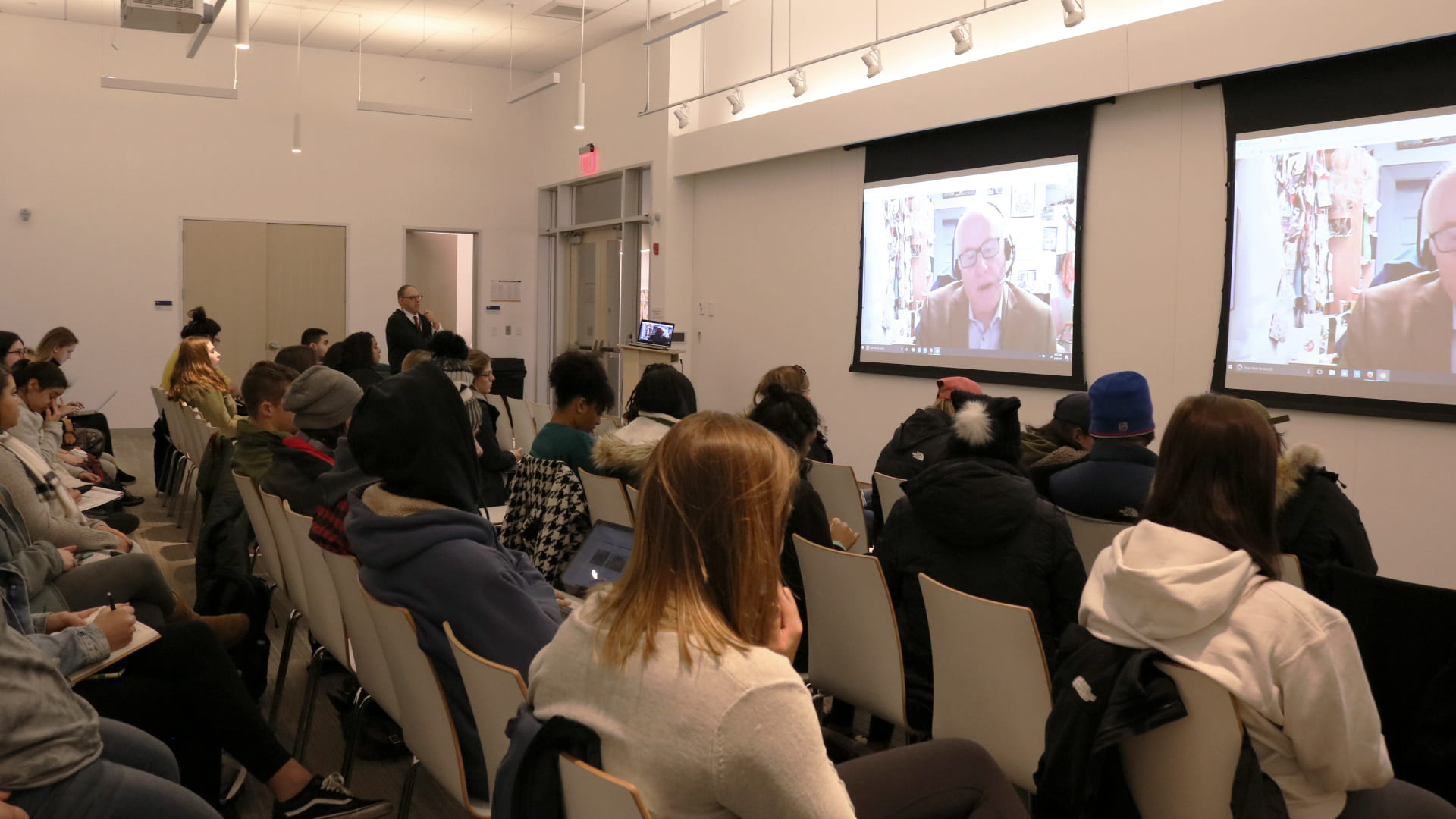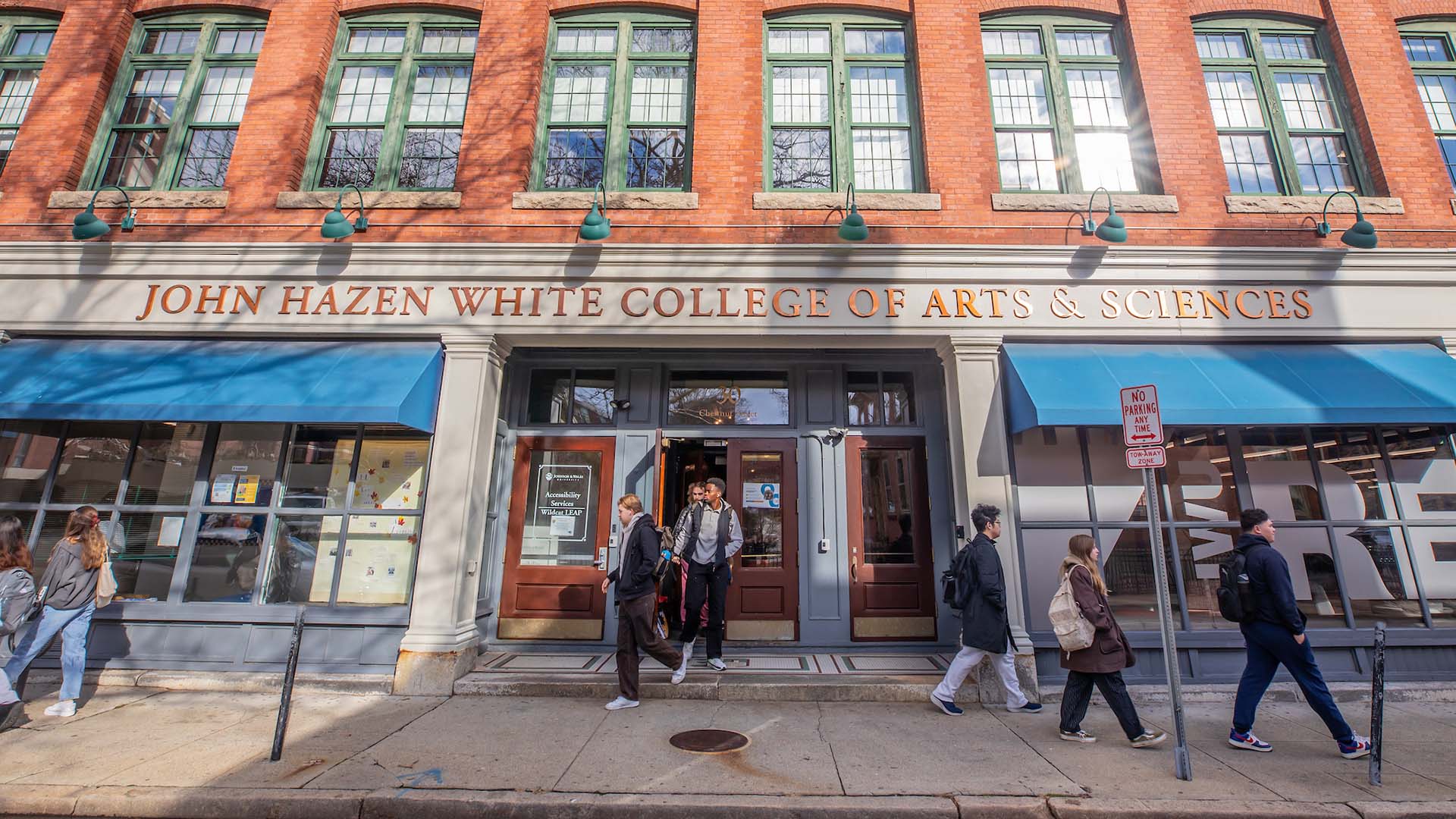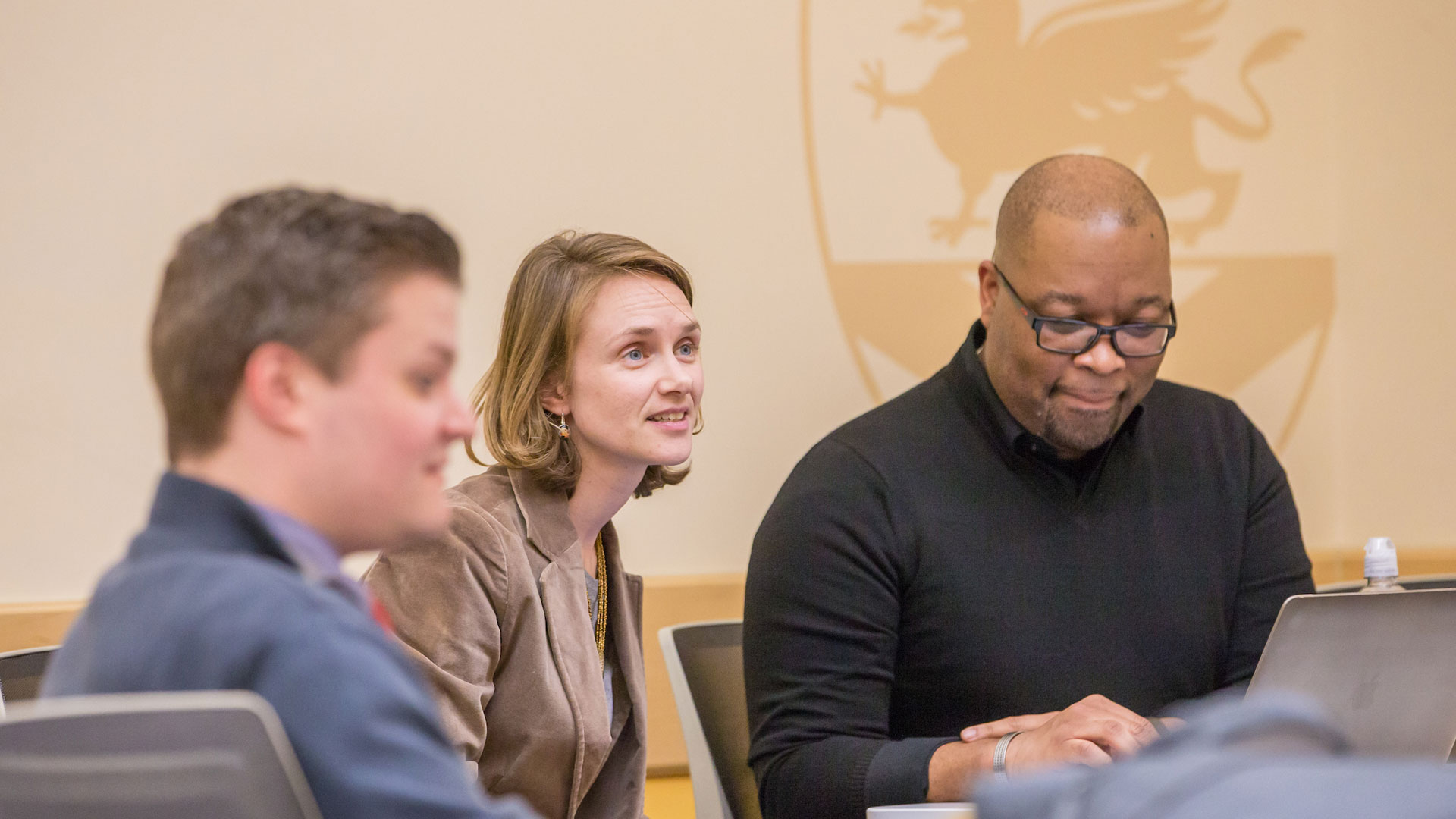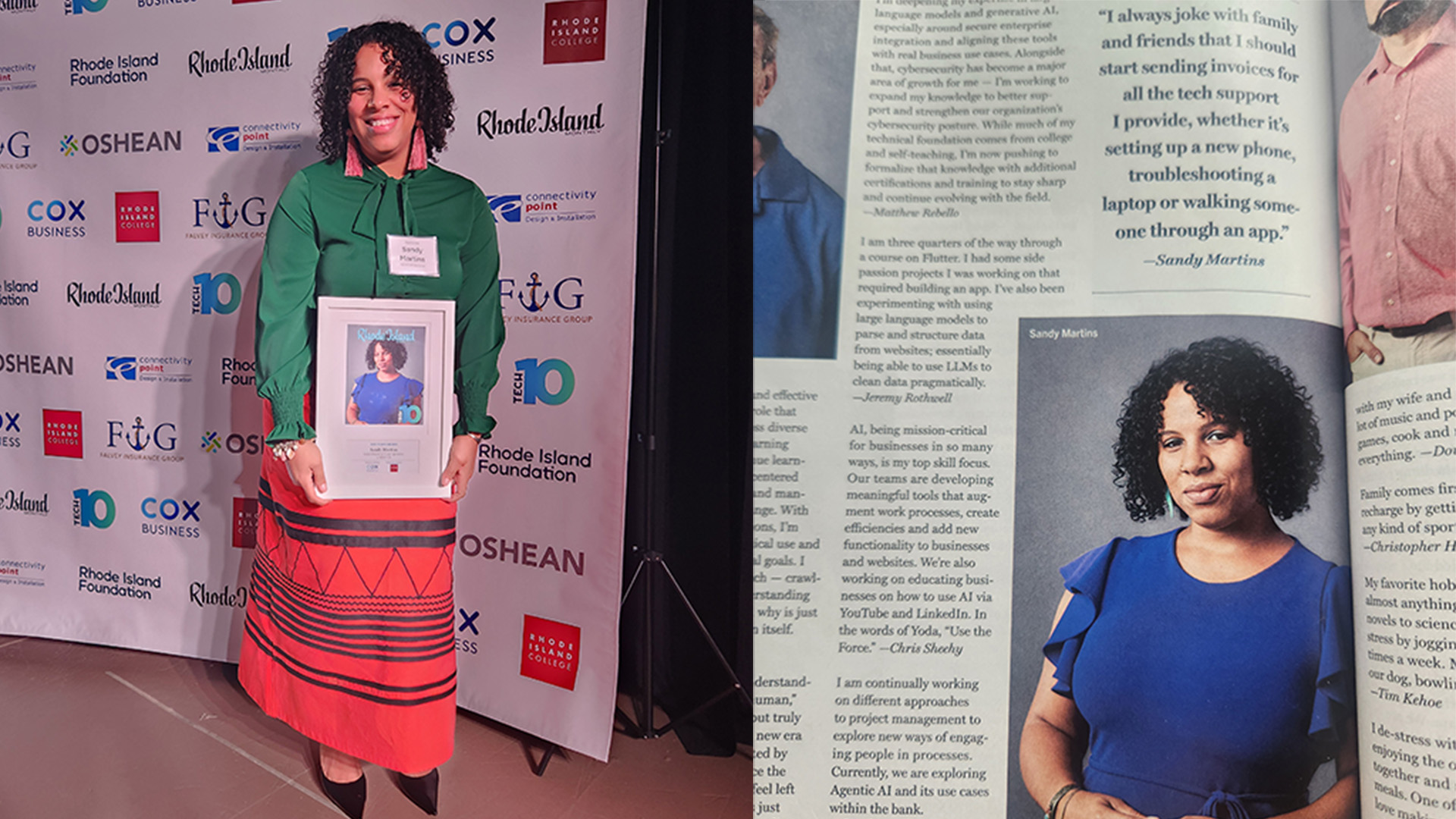A World Awash With Hate: Alex Neve Talks Human Rights with Students
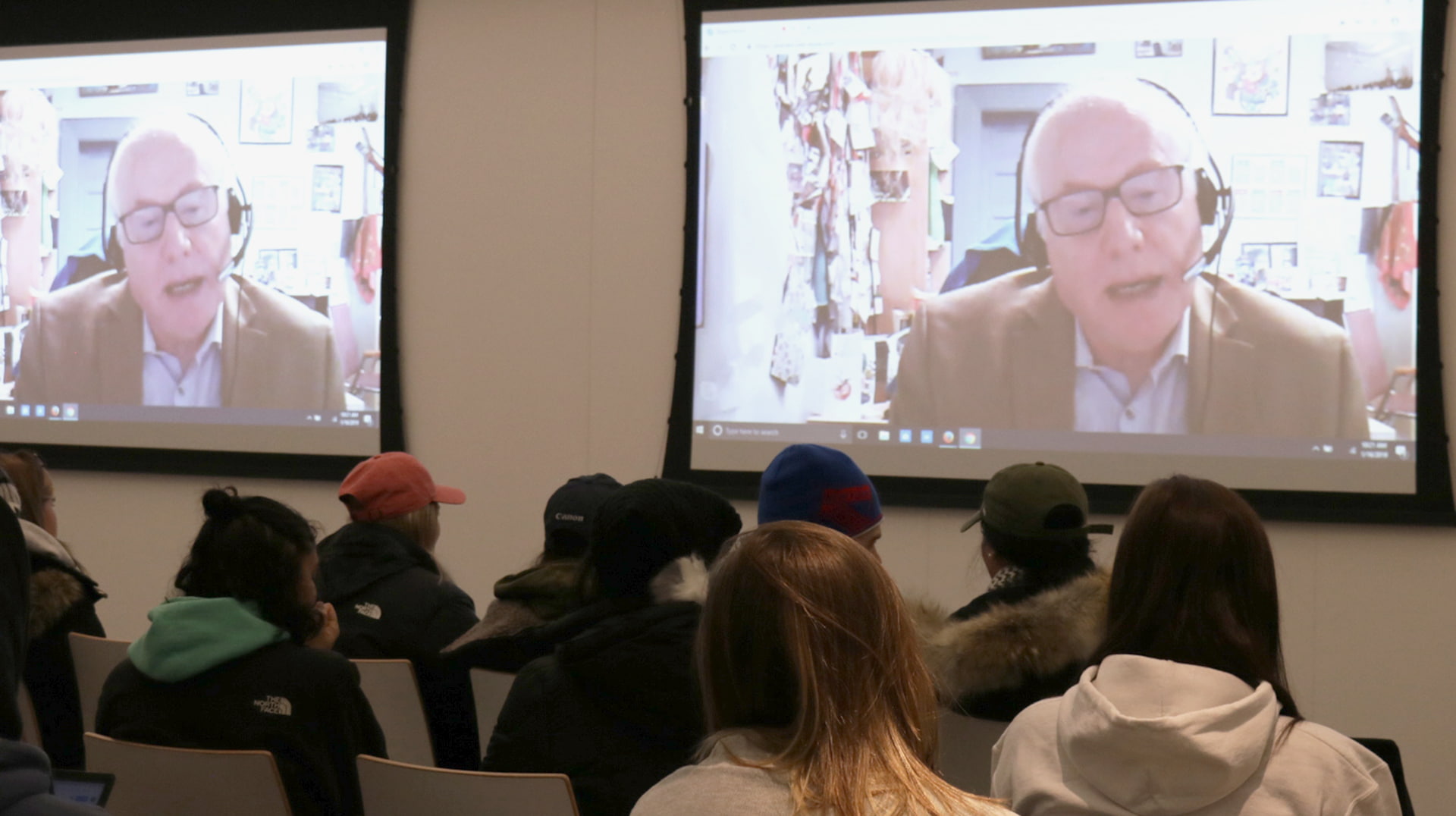
Today’s global politics seem tense when it comes to just about any subject. But, perhaps the biggest issues of late have centered around immigration, refugees and human rights. Last week, Assistant Professor Kevin Dejesus's Introduction to Global Politics and International Relations class got the chance to talk about these difficult topics with Alex Neve, the secretary general of Amnesty International Canada.
Amnesty International is a global movement that works to protect human rights by investigating and exposing injustice around the world. They remain independent of any political ideology, economic interest or religion, and pledge that “no government is beyond scrutiny and no situation is beyond hope.”
That was the attitude of Neve, who Skyped in to the class from Ottawa. He started by sharing the story of how Amnesty International began more than 50 years ago with one person sitting on a park bench and how it has now grown to over 8 million people in 65 countries.
He then moved into what is currently going on in the world. “Especially within the last few years, there’s been a feeling of doom and a grim human rights landscape, both nationally —such as with the U.S.— and certainly on the world stage,” he remarked. “And that may make people feel that the idea of universal human rights is just a pie in the sky dream."
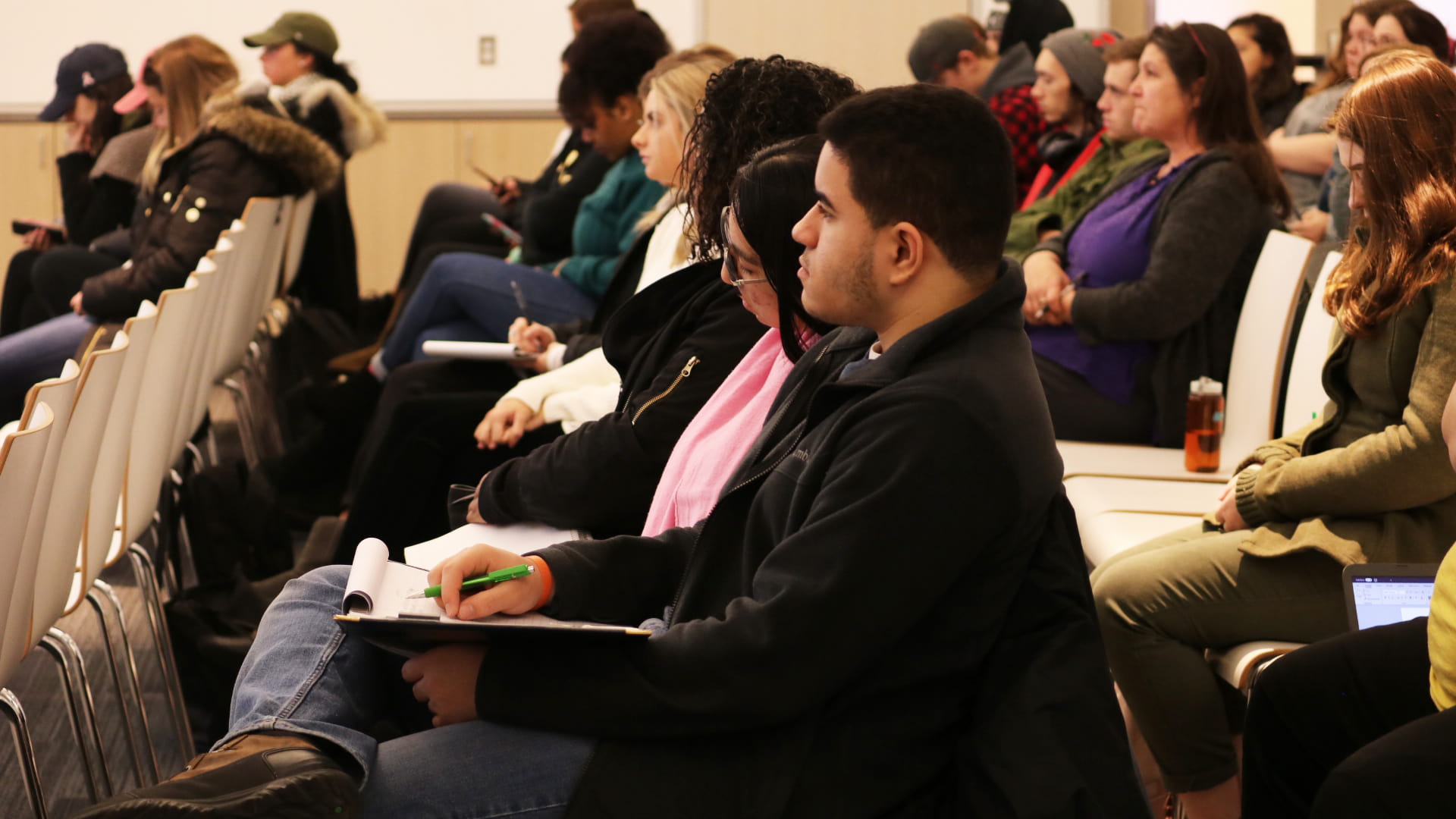
However, Neve doesn’t feel it’s an unreachable goal, and chooses to focus on the positive changes that have come from decades of human rights advocacy. Millions of people worldwide have been mobilized and continue fighting injustice, and Neve sees that as a great accomplishment in itself. Still, he acknowledged that the current human rights landscape is not doing as well as it should be.
"We are faced with a world awash with too much conflict and too much hate."
“We are faced with a world awash with too much conflict and too much hate,” he began. “What I mean by too much conflict is we have so many corners of our world where war and armed conflict continues to ravage civilian populations, because it’s always the civilians who suffer the most in those instances. This is not where we’re supposed to be in 2019.”
“When I talk about a world awash in hate, I will certainly make the point that this includes Donald Trump, but by no means is it just about him,” he continued. “What we face is a reality around the world of more leaders who are blatantly, intentionally and willingly propelling agendas of hate and division as a means of winning and holding onto power.”
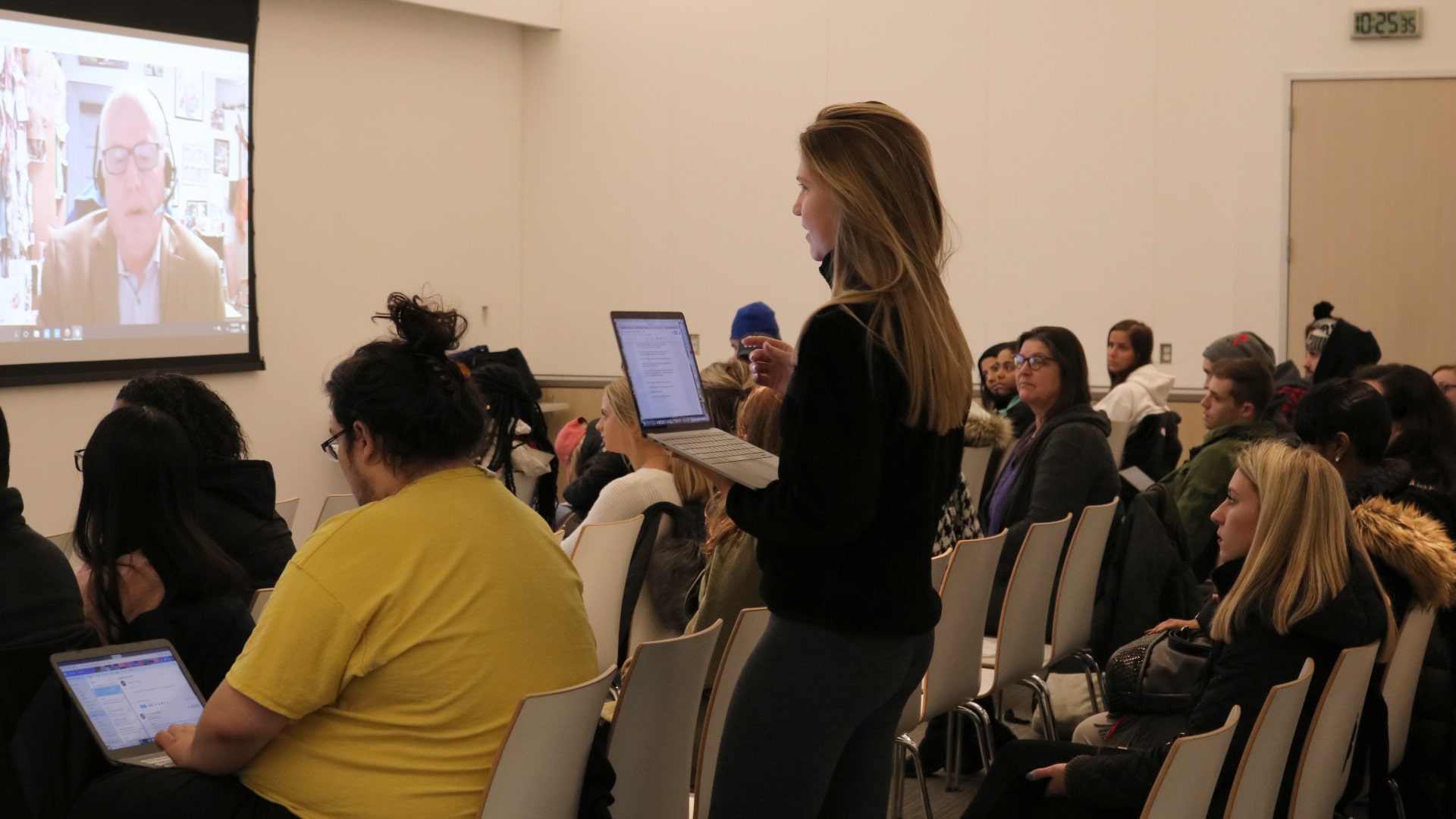
Neve then transitioned into discussing the global refugee crisis and urged students to think about this term and this problem differently. “The crisis isn’t the refugees themselves, but how states respond. We now live in a world where governments spend more money, invest more political and diplomatic capital and come up with more imagination and innovation when thinking about how to avoid, punish, turn away and confront refugees on their journey to safety than they do in ensuring that the mechanisms, generosity and the equitable global shared solidarity is in place to provide them the protection they need. That is the crisis.”
One student in the audience was surprised by some of Neve’s comments in relation to current refugee issues going on in the U.S. “I’m surprised that he would be judgmental of what’s going on at the U.S. southern border because America is the one dealing with it, not Canada,” said Steve Quillen ’21.
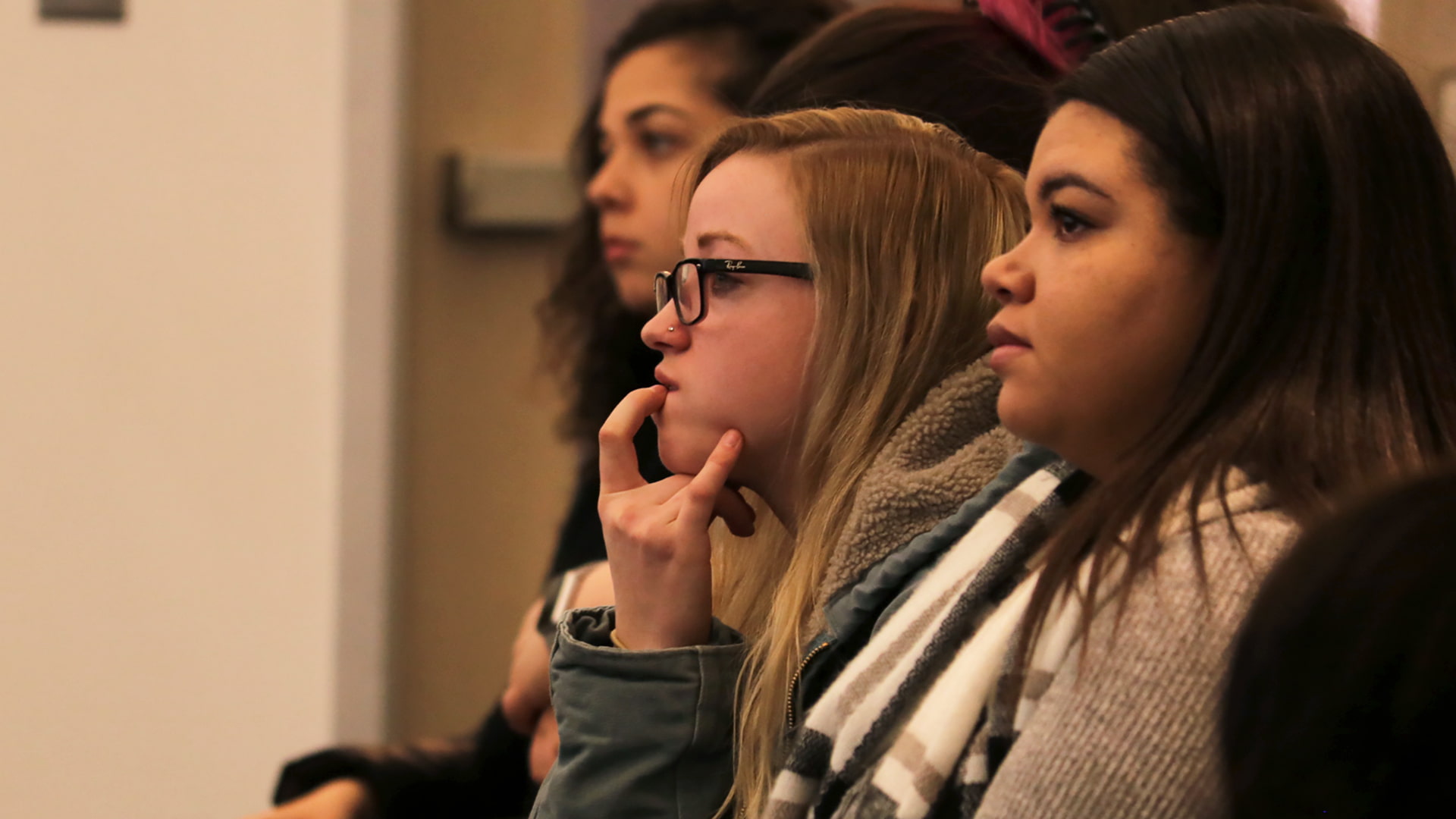
Neve is Canadian, and spoke quite candidly about the issues he sees within his own country. He also acknowledged that the “perfect and friendly” stereotypes of Canada are really misconceptions. “There are a lot of double standards and hypocrisy in what they do,” Neve said of Canadian government. From treatment of refugees and indigenous peoples to corporate interests in mining that directly and indirectly cause human rights violations.
“I liked that he was honest and unbiased about Canada, and he had facts to back up what he was talking about,” said Taleba Harris ’19.
"Even when the challenges are immense, it has always been us who have made change happen."
Despite the difficult topic, Neve ended on a positive note. “I know we just talked about the conflict, hate, hypocrisy and division — all things we need to be aware of — but don’t feel defeated or overwhelmed by them. Even when the challenges are immense, it has always been us who have made change happen.”
